The Locked up Living Podcast: Surviving and thriving in prisons and other challenging environments
Can institutional culture challenge your mental health? What if your job makes you feel shame, sadness, grief, disgust and fear? What if you are expected not to feel? Or you are expected to be relentlessly competitive? What it’s like to live or work in a prison? Does working with people who commit murder, child abuse and rape affect people who work in prisons and the wider criminal justice system?
How do people survive and thrive when facing significant challenges to our emotional health over a lengthy period? How do we protect ourselves and stay compassionate, loving and trusting? Importantly, how do we find and preserve hope?
Fyodor Dostoevsky wrote that “The degree of civilisation in a society can be judged by entering its prisons”. In this weekly podcast ,your hosts, David Jones (Forensic psychotherapist) and Dr Naomi Murphy (Consultant Clinical & Forensic Psychologist) hope that exploring less visible aspects of prisons will help listeners see that prisons are a window into society and let us see people not only at their worst but also at their best. We feature a rich range of guests sharing snap shots of life in prisons and take a look at hospitals, schools, sport and the police in order to learn from other institutions. We learn about challenges to human integrity and hear important lessons and heart-warming stories about survival and growth when facing adversity in harsh places. We hope that sharing our conversations can help you make changes to your own relationship with institutions that might challenge your emotional health and well-being.
Follow and connect with us and give us feedback. Let us know what you think works, and also what doesn’t. We want you to look forward to the podcast each week. We’ll also be extremely grateful for any reviews that you give us. A simple star or two or a thumbs up will do.
Email: lockedupliving@gmail.com or connect with us on:
Substack: https://lockedupliving.substack.com
Twitter: https://twitter.com/LockedUpLiving
Linkedin: https://www.linkedin.com/in/naomimurphypsychologist/
https://www.linkedin.com/in/david-jones-41910b12/
Insta: https://www.instagram.com/lockedupliving/
Can institutional culture challenge your mental health? What if your job makes you feel shame, sadness, grief, disgust and fear? What if you are expected not to feel? Or you are expected to be relentlessly competitive? What it’s like to live or work in a prison? Does working with people who commit murder, child abuse and rape affect people who work in prisons and the wider criminal justice system?
How do people survive and thrive when facing significant challenges to our emotional health over a lengthy period? How do we protect ourselves and stay compassionate, loving and trusting? Importantly, how do we find and preserve hope?
Fyodor Dostoevsky wrote that “The degree of civilisation in a society can be judged by entering its prisons”. In this weekly podcast ,your hosts, David Jones (Forensic psychotherapist) and Dr Naomi Murphy (Consultant Clinical & Forensic Psychologist) hope that exploring less visible aspects of prisons will help listeners see that prisons are a window into society and let us see people not only at their worst but also at their best. We feature a rich range of guests sharing snap shots of life in prisons and take a look at hospitals, schools, sport and the police in order to learn from other institutions. We learn about challenges to human integrity and hear important lessons and heart-warming stories about survival and growth when facing adversity in harsh places. We hope that sharing our conversations can help you make changes to your own relationship with institutions that might challenge your emotional health and well-being.
Follow and connect with us and give us feedback. Let us know what you think works, and also what doesn’t. We want you to look forward to the podcast each week. We’ll also be extremely grateful for any reviews that you give us. A simple star or two or a thumbs up will do.
Email: lockedupliving@gmail.com or connect with us on:
Substack: https://lockedupliving.substack.com
Twitter: https://twitter.com/LockedUpLiving
Linkedin: https://www.linkedin.com/in/naomimurphypsychologist/
https://www.linkedin.com/in/david-jones-41910b12/
Insta: https://www.instagram.com/lockedupliving/
Episodes
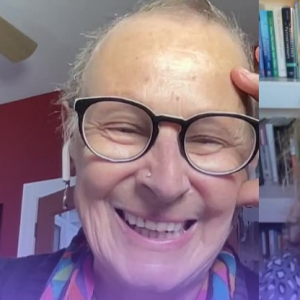
Wednesday Apr 02, 2025
Wednesday Apr 02, 2025
In this episode, David Jones and Dr Naomi Murphy meet with Julie McFarlane, a prominent figure in the fight against exploitative non-disclosure agreements (NDAs) and advocate for access to justice. Julie shares her insights on the challenges faced by individuals navigating the legal system, particularly those who self-represent. We discuss the implications of NDAs in workplace investigations, the importance of knowledge as power, and the need for systemic change within the legal profession.
https://www.cantbuymysilence.com/
https://representingyourselfcanada.com/
https://www.amazon.co.uk/Going-Public-Survivors-Journey-Action/dp/1771134755
Key Topics Discussed:
- Julie's background and her journey towards advocating for marginalized individuals.
- The purpose and structure of the Canadian side of Can't Buy My Silence, focusing on educating people about NDAs.
- The psychological impact of navigating the legal system, including experiences of PTSD among self-representing litigants.
- The challenges faced by individuals when dealing with health authorities and legal agreements.
- The importance of trauma-informed approaches in legal processes.
- The role of whistleblowing lawyers and the current landscape in Canada.
- Julie's personal experiences with the legal system and her advocacy work

Wednesday Apr 02, 2025
Wednesday Apr 02, 2025
In this episode, David Jones and Dr Naomi Murphy meet with Julie McFarlane, a prominent figure in the fight against exploitative non-disclosure agreements (NDAs) and advocate for access to justice. Julie shares her insights on the challenges faced by individuals navigating the legal system, particularly those who self-represent. We discuss the implications of NDAs in workplace investigations, the importance of knowledge as power, and the need for systemic change within the legal profession.
https://www.cantbuymysilence.com/
https://representingyourselfcanada.com/
https://www.amazon.co.uk/Going-Public-Survivors-Journey-Action/dp/1771134755
Key Topics Discussed:
- Julie's background and her journey towards advocating for marginalized individuals.
- The purpose and structure of the Canadian side of Can't Buy My Silence, focusing on educating people about NDAs.
- The psychological impact of navigating the legal system, including experiences of PTSD among self-representing litigants.
- The challenges faced by individuals when dealing with health authorities and legal agreements.
- The importance of trauma-informed approaches in legal processes.
- The role of whistleblowing lawyers and the current landscape in Canada.
- Julie's personal experiences with the legal system and her advocacy work.
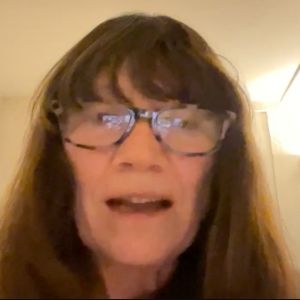
Wednesday Mar 26, 2025
Wednesday Mar 26, 2025
Keywords
forensic psychology, therapeutic community, learning disabilities, prison system, mental health, Sue Jamieson, Gartree, Grendon, staff support, holistic care
Summary
In this conversation David Jones and Naomi Murphy meet with Sue Jamieson, a forensic psychologist and clinical lead for the TC Plus at HMP Gartree, shares her diverse career journey and insights into the challenges and rewards of working in forensic psychology. She discusses her transition from a scientific background to psychology, the differences between therapeutic environments in prisons, and the unique challenges faced when working with individuals with learning disabilities. Sue emphasizes the importance of holistic care and the need for supportive environments for both staff and residents in the prison system.

Wednesday Mar 26, 2025
Wednesday Mar 26, 2025
Keywords
forensic psychology, therapeutic community, learning disabilities, prison system, mental health, Sue Jamieson, Gartree, Grendon, staff support, holistic care
Summary
In this conversation David Jones and Naomi Murphy meet with Sue Jamieson, a forensic psychologist and clinical lead for the TC Plus at HMP Gartree, shares her diverse career journey and insights into the challenges and rewards of working in forensic psychology. She discusses her transition from a scientific background to psychology, the differences between therapeutic environments in prisons, and the unique challenges faced when working with individuals with learning disabilities. Sue emphasizes the importance of holistic care and the need for supportive environments for both staff and residents in the prison system.
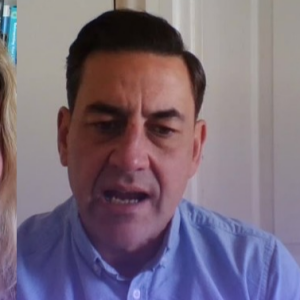
Wednesday Mar 19, 2025
Wednesday Mar 19, 2025
In this powerful episode Naomi Murphy and David Jones meet with former professional footballer Andy Woodward who shares his harrowing journey of survival and advocacy after disclosing the sexual abuse he suffered at the hands of football coach Barry Bennell. Andy discusses the challenges he faced in the media, the importance of trauma-informed journalism, and his commitment to helping others who have experienced similar trauma. He reflects on the impact of his experiences on his family and his personal journey towards healing and empowerment.
Andy Woodward. was catapulted onto the front covers of the press in 2016 when he disclosed that he had been sexually abused over several years by the football coachBarry Bennell. He’s written an award winning book, Position of Trust and the film Floodlights showed some of his story. He was a founding member of The Offside Trust and supported the setting up of Operation Hydrant.
https://www.amazon.co.uk/Position-Trust-football-betrayed-Shortlisted/dp/147369969X
Key Topics Discussed:
- Andy's decision to go public about his abuse in 2016 and the pivotal moments that led to this choice.
- The role of journalists and the media in telling sensitive stories and the need for a duty of care towards victims.
- The emotional toll of reliving traumatic experiences during interviews and the lack of support provided to him.
- The importance of free speech and the right to share one's truth, especially for survivors of abuse.
- Andy's journey of self-healing, including his work with therapists and his exploration of spirituality.
- The impact of his experiences on his family and the broader implications for society in addressing abuse and mental health.
- Andy's commitment to inspiring others and advocating for change within organizations that have failed to protect victims.

Wednesday Mar 19, 2025
Wednesday Mar 19, 2025
In this powerful episode Naomi Murphy and David Jones meet with former professional footballer Andy Woodward who shares his harrowing journey of survival and advocacy after disclosing the sexual abuse he suffered at the hands of football coach Barry Bennell. Andy discusses the challenges he faced in the media, the importance of trauma-informed journalism, and his commitment to helping others who have experienced similar trauma. He reflects on the impact of his experiences on his family and his personal journey towards healing and empowerment.
Andy Woodward. was catapulted onto the front covers of the press in 2016 when he disclosed that he had been sexually abused over several years by the football coachBarry Bennell. He’s written an award winning book, Position of Trust and the film Floodlights showed some of his story. He was a founding member of The Offside Trust and supported the setting up of Operation Hydrant.
https://www.amazon.co.uk/Position-Trust-football-betrayed-Shortlisted/dp/147369969X
Key Topics Discussed:
- Andy's decision to go public about his abuse in 2016 and the pivotal moments that led to this choice.
- The role of journalists and the media in telling sensitive stories and the need for a duty of care towards victims.
- The emotional toll of reliving traumatic experiences during interviews and the lack of support provided to him.
- The importance of free speech and the right to share one's truth, especially for survivors of abuse.
- Andy's journey of self-healing, including his work with therapists and his exploration of spirituality.
- The impact of his experiences on his family and the broader implications for society in addressing abuse and mental health.
- Andy's commitment to inspiring others and advocating for change within organizations that have failed to protect victims.

Wednesday Mar 12, 2025
Wednesday Mar 12, 2025
Toby Ingham is a BPC & UKCP registered psychotherapist & supervisor and a member of The British Psychotherapy Foundation and BAPPS. He was Clinical Director of South Bucks Counselling (2019-2023). Before setting up his psychotherapy practice in Oxford, he trained in the NHS at St Barts’ Hospital, and at the Homerton Hospital in London. He is a former staff psychotherapist at Nightingale Hospital and also trained at Promis Addiction Centre, and Age Concern. He has 25 years of experience working with people dealing with depression, low mood, anxiety states, trauma, bereavement, addictions, and emotional instability. https://tobyingham.com/
https://www.karnacbooks.com/ProductTOC.asp?PID=97952
In this conversation, Toby discusses his book 'A Guilty Victim', which chronicles his therapeutic journey with a client named William. The discussion delves into the complexities of psychotherapy, the impact of trauma on creativity, and the ethical considerations of sharing a client's story. Ingham emphasizes the importance of collaboration in therapy and the profound effects of emotional neglect on an individual's ability to express themselves creatively. The conversation also highlights the therapist's perspective on self-care and the emotional demands of the profession.

Wednesday Mar 12, 2025
Wednesday Mar 12, 2025
Toby Ingham is a BPC & UKCP registered psychotherapist & supervisor and a member of The British Psychotherapy Foundation and BAPPS. He was Clinical Director of South Bucks Counselling (2019-2023). Before setting up his psychotherapy practice in Oxford, he trained in the NHS at St Barts’ Hospital, and at the Homerton Hospital in London. He is a former staff psychotherapist at Nightingale Hospital and also trained at Promis Addiction Centre, and Age Concern. He has 25 years of experience working with people dealing with depression, low mood, anxiety states, trauma, bereavement, addictions, and emotional instability. https://tobyingham.com/
https://www.karnacbooks.com/ProductTOC.asp?PID=97952
In this conversation, Toby discusses his book 'A Guilty Victim', which chronicles his therapeutic journey with a client named William. The discussion delves into the complexities of psychotherapy, the impact of trauma on creativity, and the ethical considerations of sharing a client's story. Ingham emphasizes the importance of collaboration in therapy and the profound effects of emotional neglect on an individual's ability to express themselves creatively. The conversation also highlights the therapist's perspective on self-care and the emotional demands of the profession.
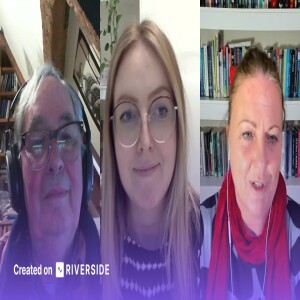
Wednesday Mar 05, 2025
Wednesday Mar 05, 2025
keywordsmoral injury, psychological trauma, healthcare, forensic populations, mental health, research, organizational health, emotional literacy, whistleblowing, secure mental health
summaryIn this conversation, Elanor Webb discusses the concept of moral injury, particularly in the context of healthcare and forensic populations. She explains the definitions, symptoms, and historical context of moral injury, as well as her research findings on its prevalence and sources in secure mental health settings. The discussion also covers protective factors against moral injury, the role of organizations in fostering a morally healthy environment, and the implications of whistleblowing. Elanor emphasizes the importance of emotional literacy and support systems for individuals working in high-stress environments.
· Elanor's research relating to potential sources of moral injury for secure mental healthcare staff is published and available at: https://www.emerald.com/insight/content/doi/10.1108/jcrpp-03-2024-0021/full/html?skipTracking=true#:~:text=In%20accordance%20with%20dominant%20definitions,700).
· The CDCT project relating to recommendations for establishing a morally healthy organisation is published and available at: https://journals.lww.com/joem/abstract/9900/guidance_for_creating_morally_healthy.727.aspx
takeaways
Moral injury arises from actions that conflict with one's moral values.
It is characterized by feelings of guilt, shame, and loss of trust.
Moral injury is distinct from PTSD and burnout.
The historical context of moral injury is rooted in war-related experiences.
Research shows moral injury is prevalent in healthcare settings, especially during COVID-19.
Sources of moral injury can be unique to specific environments, like secure mental health care.
Social support can have both protective and negative effects on moral injury.
Organizational responses to moral transgressions significantly impact individual experiences of moral injury.
Whistleblowing can be both a response to and a cause of moral injury.
Education and emotional literacy are crucial for preventing moral injury.

Wednesday Mar 05, 2025
Wednesday Mar 05, 2025
keywordsmoral injury, psychological trauma, healthcare, forensic populations, mental health, research, organizational health, emotional literacy, whistleblowing, secure mental health
summaryIn this conversation, Elanor Webb discusses the concept of moral injury, particularly in the context of healthcare and forensic populations. She explains the definitions, symptoms, and historical context of moral injury, as well as her research findings on its prevalence and sources in secure mental health settings. The discussion also covers protective factors against moral injury, the role of organizations in fostering a morally healthy environment, and the implications of whistleblowing. Elanor emphasizes the importance of emotional literacy and support systems for individuals working in high-stress environments.
· Elanor's research relating to potential sources of moral injury for secure mental healthcare staff is published and available at: https://www.emerald.com/insight/content/doi/10.1108/jcrpp-03-2024-0021/full/html?skipTracking=true#:~:text=In%20accordance%20with%20dominant%20definitions,700).
· The CDCT project relating to recommendations for establishing a morally healthy organisation is published and available at: https://journals.lww.com/joem/abstract/9900/guidance_for_creating_morally_healthy.727.aspx
takeaways
Moral injury arises from actions that conflict with one's moral values.
It is characterized by feelings of guilt, shame, and loss of trust.
Moral injury is distinct from PTSD and burnout.
The historical context of moral injury is rooted in war-related experiences.
Research shows moral injury is prevalent in healthcare settings, especially during COVID-19.
Sources of moral injury can be unique to specific environments, like secure mental health care.
Social support can have both protective and negative effects on moral injury.
Organizational responses to moral transgressions significantly impact individual experiences of moral injury.
Whistleblowing can be both a response to and a cause of moral injury.
Education and emotional literacy are crucial for preventing moral injury.

Wednesday Feb 26, 2025
Dr Cathy Wield (Audio); A shocking story of battling through the mental health system.
Wednesday Feb 26, 2025
Wednesday Feb 26, 2025
keywordsmental health, trauma, psychiatry, stigma, treatment, depression, alternative therapies, childhood experiences, faith, patient advocacy
summary In this conversation David and Naomi talk with Dr. Cathy Wield. Cathy shares her profound journey through the mental health system, detailing her experiences with the label of treatment-resistant depression, the stigma surrounding mental health, and the impact of childhood trauma. She discusses her discoveries about alternative treatments and the importance of questioning the medical narrative. Dr. Wield emphasizes the need for compassion in mental health care and encourages others to reflect on their own experiences and treatment options.
Cathy's book; Unshackled Mind: A Doctor’s Story of Trauma, Liberation and Healing
https://realspeak.org/about-2/
Takeaways
Dr. Wield's journey highlights the complexities of mental health treatment.
Stigma can exacerbate feelings of failure in patients.
The narrative of being 'ill' can overshadow personal experiences.
Childhood trauma plays a significant role in mental health.
Alternative treatments can lead to better outcomes.
Dehumanization in treatment can lead to further trauma.
Patients should feel empowered to question their treatment.
Understanding the root causes of behavior is crucial in mental health.
Support networks are vital for recovery.

Wednesday Feb 26, 2025
Dr Cathy Wield (Video); A shocking story of battling through the mental health system.
Wednesday Feb 26, 2025
Wednesday Feb 26, 2025
keywordsmental health, trauma, psychiatry, stigma, treatment, depression, alternative therapies, childhood experiences, faith, patient advocacy
summary In this conversation David and Naomi talk with Dr. Cathy Wield. Cathy shares her profound journey through the mental health system, detailing her experiences with the label of treatment-resistant depression, the stigma surrounding mental health, and the impact of childhood trauma. She discusses her discoveries about alternative treatments and the importance of questioning the medical narrative. Dr. Wield emphasizes the need for compassion in mental health care and encourages others to reflect on their own experiences and treatment options.
Cathy's book; Unshackled Mind: A Doctor’s Story of Trauma, Liberation and Healing
https://realspeak.org/about-2/
Takeaways
Dr. Wield's journey highlights the complexities of mental health treatment.
Stigma can exacerbate feelings of failure in patients.
The narrative of being 'ill' can overshadow personal experiences.
Childhood trauma plays a significant role in mental health.
Alternative treatments can lead to better outcomes.
Dehumanization in treatment can lead to further trauma.
Patients should feel empowered to question their treatment.
Understanding the root causes of behavior is crucial in mental health.
Support networks are vital for recovery.

Wednesday Feb 19, 2025
Wednesday Feb 19, 2025
Keywords
Arukah Project, trauma-informed care, emotional freedom techniques, prison rehabilitation, mental health, adverse childhood experiences, somatic techniques, community support, wellbeing, resilience
Summary
The conversation centres around the Arukah Project, founded by Sharon Osterfield and Aga Kehinde, which aims to provide trauma-informed care and emotional freedom techniques (EFT) to support individuals, particularly in prison settings. They discuss their personal experiences that led to the creation of the project, the importance of understanding trauma, and the effectiveness of EFT in managing stress and emotional dysregulation. The project focuses on psychoeducation, community support, and future initiatives to expand their reach and impact.
Takeaways
The Arukah Project focuses on the restoration of mind, body, and spirit.
Both founders have personal experiences that shaped their mission.
Understanding trauma is crucial for effective intervention.
EFT is a simple yet powerful technique for stress reduction.
Trauma-informed care can significantly impact prison rehabilitation.
The project aims to educate and empower individuals with tools for resilience.
Community involvement and lived experience are central to their approach.
The project seeks to address the generational impact of trauma.
Future initiatives include expanding into police support and youth interventions.
Collaboration with other organizations enhances their effectiveness.
Chapters
00:00 Introduction to the Arukah Project
03:14 Foundational Experiences and Motivations
06:14 The Arukah Project's Focus on Trauma
08:34 Exploring the Prison Population
11:26 Understanding Emotional Freedom Techniques (EFT)
14:37 Evidence and Effectiveness of EFT
17:01 Implementing the Arukah Project in Prisons
23:00 Understanding Trauma in Prison Environments
25:41 Barriers to Implementing Support Programs
28:33 Future Directions for the Arukah Project
34:32 Organizational Growth and Community Impact
38:31 Evidence-Based Practices in Trauma Support
40:22 Practical Wellbeing Tips for Listeners
42:12 Outro Oct 23 2.mp4

Wednesday Feb 19, 2025
Wednesday Feb 19, 2025
Arukah Project, trauma-informed care, emotional freedom techniques, prison rehabilitation, mental health, adverse childhood experiences, somatic techniques, community support, wellbeing, resilience
Summary
The conversation centres around the Arukah Project, founded by Sharon Osterfield and Aga Kehinde, which aims to provide trauma-informed care and emotional freedom techniques (EFT) to support individuals, particularly in prison settings. They discuss their personal experiences that led to the creation of the project, the importance of understanding trauma, and the effectiveness of EFT in managing stress and emotional dysregulation. The project focuses on psychoeducation, community support, and future initiatives to expand their reach and impact.
Takeaways
The Arukah Project focuses on the restoration of mind, body, and spirit.
Both founders have personal experiences that shaped their mission.
Understanding trauma is crucial for effective intervention.
EFT is a simple yet powerful technique for stress reduction.
Trauma-informed care can significantly impact prison rehabilitation.
The project aims to educate and empower individuals with tools for resilience.
Community involvement and lived experience are central to their approach.
The project seeks to address the generational impact of trauma.
Future initiatives include expanding into police support and youth interventions.
Collaboration with other organizations enhances their effectiveness.
Chapters
00:00 Introduction to the Arukah Project
03:14 Foundational Experiences and Motivations
06:14 The Arukah Project's Focus on Trauma
08:34 Exploring the Prison Population
11:26 Understanding Emotional Freedom Techniques (EFT)
14:37 Evidence and Effectiveness of EFT
17:01 Implementing the Arukah Project in Prisons
23:00 Understanding Trauma in Prison Environments
25:41 Barriers to Implementing Support Programs
28:33 Future Directions for the Arukah Project
34:32 Organizational Growth and Community Impact
38:31 Evidence-Based Practices in Trauma Support
40:22 Practical Wellbeing Tips for Listeners
42:12 Outro Oct 23 2.mp4
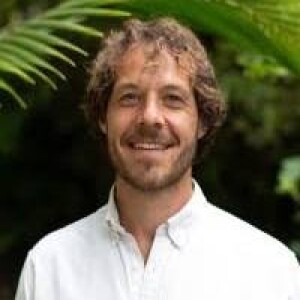
Wednesday Feb 12, 2025
Daniel White (Audio); Embracing Nature: The Science of Circadian Rhythms and Well-Being
Wednesday Feb 12, 2025
Wednesday Feb 12, 2025
In this fascinating episode, Naomi Murphy and David Jones meet with Daniel White, a leading expert in circadian rhythms and health optimization. Daniel shares his journey into the world of sleep science and circadian rhythms, discussing the profound effects of light exposure on our health and well-being. He emphasizes the importance of aligning our lifestyles with the natural rhythms of the planet and offers practical tips for improving sleep and overall health.
Key Topics Discussed:
- Introduction to Daniel White and his background in nutrition and health coaching.
- The significance of circadian rhythms and how they influence our daily lives.
- The impact of artificial light from screens versus natural light on our body clocks.
- Insights into Daniel's company, Sleep Better, Live Better, and its mission to educate and improve health outcomes.
- The role of nutrition and light exposure in enhancing mental health and mood.
- Tips for shift workers on managing their health while working non-traditional hours.
- The importance of spending time outdoors and connecting with nature for overall well-being.
- Daniel's personal journey into understanding circadian rhythms and their effects on health.
- The connection between light exposure and mitochondrial health. - Practical advice for listeners on how to improve their sleep and daily routines.
- The upcoming educational programs aimed at schools and organizations to promote better health practices.
https://www.sleepbetterlivebetter.co.uk/?srsltid=AfmBOorWit3-6dsvnZ-K_3qPllS_t3Be2-h_RFzGgJrDqEv0RFZQnZnX

Wednesday Feb 12, 2025
Daniel White (Video) Embracing Nature: The Science of Circadian Rhythms and Well-Being
Wednesday Feb 12, 2025
Wednesday Feb 12, 2025
In this fascinating episode, Naomi Murphy and David Jones meet with Daniel White, a leading expert in circadian rhythms and health optimization. Daniel shares his journey into the world of sleep science and circadian rhythms, discussing the profound effects of light exposure on our health and well-being. He emphasizes the importance of aligning our lifestyles with the natural rhythms of the planet and offers practical tips for improving sleep and overall health.
Key Topics Discussed:
- Introduction to Daniel White and his background in nutrition and health coaching.
- The significance of circadian rhythms and how they influence our daily lives.
- The impact of artificial light from screens versus natural light on our body clocks.
- Insights into Daniel's company, Sleep Better, Live Better, and its mission to educate and improve health outcomes.
- The role of nutrition and light exposure in enhancing mental health and mood.
- Tips for shift workers on managing their health while working non-traditional hours.
- The importance of spending time outdoors and connecting with nature for overall well-being.
- Daniel's personal journey into understanding circadian rhythms and their effects on health.
- The connection between light exposure and mitochondrial health. - Practical advice for listeners on how to improve their sleep and daily routines.
- The upcoming educational programs aimed at schools and organizations to promote better health practices.
https://www.sleepbetterlivebetter.co.uk/?srsltid=AfmBOorWit3-6dsvnZ-K_3qPllS_t3Be2-h_RFzGgJrDqEv0RFZQnZnX
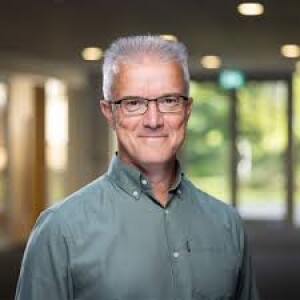
Wednesday Feb 05, 2025
Dr Paul Greenall (Audio); Understanding Stranger Sexual Violence: Insights and Impacts
Wednesday Feb 05, 2025
Wednesday Feb 05, 2025
In this discussion David Jones and Naomi Murphy meet with Dr. Paul Greenall. Dr. Greenall is a seasoned forensic psychologist with extensive experience in secure mental health hospitals and NHS services within prisons.
Paul delves into the complexities of forensic practice, particularly focusing on the nuances of sexual violence and the importance of treating each case as unique. He emphasizes the need for an ideographic approach, which means understanding the individual circumstances and motivations behind each offender's actions rather than relying solely on group-based research.
This perspective is crucial, as it acknowledges that even similar offenses can stem from vastly different reasons depending on the individual involved. Paul shares his journey into the field, starting from his early experiences at Ashworth Hospital, Liverpool. He reflects on how these experiences shaped his understanding of the emotional toll that forensic work can take on practitioners. He candidly discusses the potential for desensitisation and the development of gallows humour as coping mechanisms in a profession that often deals with extreme and distressing behaviors.
The conversation also touches on the societal perceptions of sexual violence, particularly how crime dramas can distort public understanding by portraying stranger assaults as more common than they actually are. Paul points out that most sexual offenses occur within personal relationships, highlighting the need for a more accurate representation of these issues in media and public discourse.
Throughout the discussion, Paul advocates for the importance of free speech and the value of maintaining a compassionate and positive outlook in forensic practice. He acknowledges the challenges faced by professionals in the field, including the risk of cynicism and burnout, and emphasizes the necessity of self-care and maintaining a sense of purpose. Listeners are encouraged to consider the individual stories behind criminal behavior and to approach each case with empathy and an open mind.
Paul's research; https://www.researchgate.net/profile/Paul-Greenall
Paul's book; https://www.amazon.co.uk/Sexual-Offending-Strangers-Paul-Greenall/dp/1032109319
Find Paul here; https://uk.linkedin.com/in/dr-paul-v-greenall-b470a3300

Wednesday Feb 05, 2025
Paul Greenall (Video) Understanding Stranger Sexual Violence: Insights and Impacts
Wednesday Feb 05, 2025
Wednesday Feb 05, 2025
In this discussion David Jones and Naomi Murphy meet with Dr. Paul Greenall. Dr. Greenall is a seasoned forensic psychologist with extensive experience in secure mental health hospitals and NHS services within prisons.
Paul delves into the complexities of forensic practice, particularly focusing on the nuances of sexual violence and the importance of treating each case as unique. He emphasizes the need for an ideographic approach, which means understanding the individual circumstances and motivations behind each offender's actions rather than relying solely on group-based research.
This perspective is crucial, as it acknowledges that even similar offenses can stem from vastly different reasons depending on the individual involved. Paul shares his journey into the field, starting from his early experiences at Ashworth Hospital, Liverpool. He reflects on how these experiences shaped his understanding of the emotional toll that forensic work can take on practitioners. He candidly discusses the potential for desensitisation and the development of gallows humour as coping mechanisms in a profession that often deals with extreme and distressing behaviors.
The conversation also touches on the societal perceptions of sexual violence, particularly how crime dramas can distort public understanding by portraying stranger assaults as more common than they actually are. Paul points out that most sexual offenses occur within personal relationships, highlighting the need for a more accurate representation of these issues in media and public discourse.
Throughout the discussion, Paul advocates for the importance of free speech and the value of maintaining a compassionate and positive outlook in forensic practice. He acknowledges the challenges faced by professionals in the field, including the risk of cynicism and burnout, and emphasizes the necessity of self-care and maintaining a sense of purpose. Listeners are encouraged to consider the individual stories behind criminal behavior and to approach each case with empathy and an open mind.
Paul's research; https://www.researchgate.net/profile/Paul-Greenall
Paul's book; https://www.amazon.co.uk/Sexual-Offending-Strangers-Paul-Greenall/dp/1032109319
Find Paul here; https://uk.linkedin.com/in/dr-paul-v-greenall-b470a3300

Wednesday Jan 29, 2025
Wednesday Jan 29, 2025
In this episode of Locked Up Living, Naomi and David interview Harriet Waley Cohen. As a seasoned speaker, trainer, coach, and writer with a background in psychology and investment management, Harriet shares her journey and expertise in supporting women in male-dominated environments. She discusses her career transition, personal experiences, and current initiatives on diversity, equality, and inclusion. Harriet also delves into the toxicity of perfectionism and her approach to fostering inclusive corporate cultures.
Find out more here at: www.harrietwaleycohen.com
Why 'Imposter Syndrome' is a DEI issue (and not a mindset issue) - Get Harriet's free report here
Download Harriet's collaborative research report into The Sexualisation of Women in the Workplace here
Join the conversation and connect with Harriet on LinkedIn here
Watch Harriet's talk on the toxicity of perfectionism here
Interested to work with Harriet or to book her to speak? Reply here to Allison, her awesome EA at help@harrietwaleycohen.com Video: ITV's This Morning: body positivity and breast cancer

Wednesday Jan 29, 2025
Wednesday Jan 29, 2025
In this episode of Locked Up Living, Naomi and David interview Harriet Waley Cohen. As a seasoned speaker, trainer, coach, and writer with a background in psychology and investment management, Harriet shares her journey and expertise in supporting women in male-dominated environments. She discusses her career transition, personal experiences, and current initiatives on diversity, equality, and inclusion. Harriet also delves into the toxicity of perfectionism and her approach to fostering inclusive corporate cultures.
Find out more here at: www.harrietwaleycohen.com
Why 'Imposter Syndrome' is a DEI issue (and not a mindset issue) - Get Harriet's free report here
Download Harriet's collaborative research report into The Sexualisation of Women in the Workplace here
Join the conversation and connect with Harriet on LinkedIn here
Watch Harriet's talk on the toxicity of perfectionism here
Interested to work with Harriet or to book her to speak? Reply here to Allison, her awesome EA at help@harrietwaleycohen.com Video: ITV's This Morning: body positivity and breast cancer
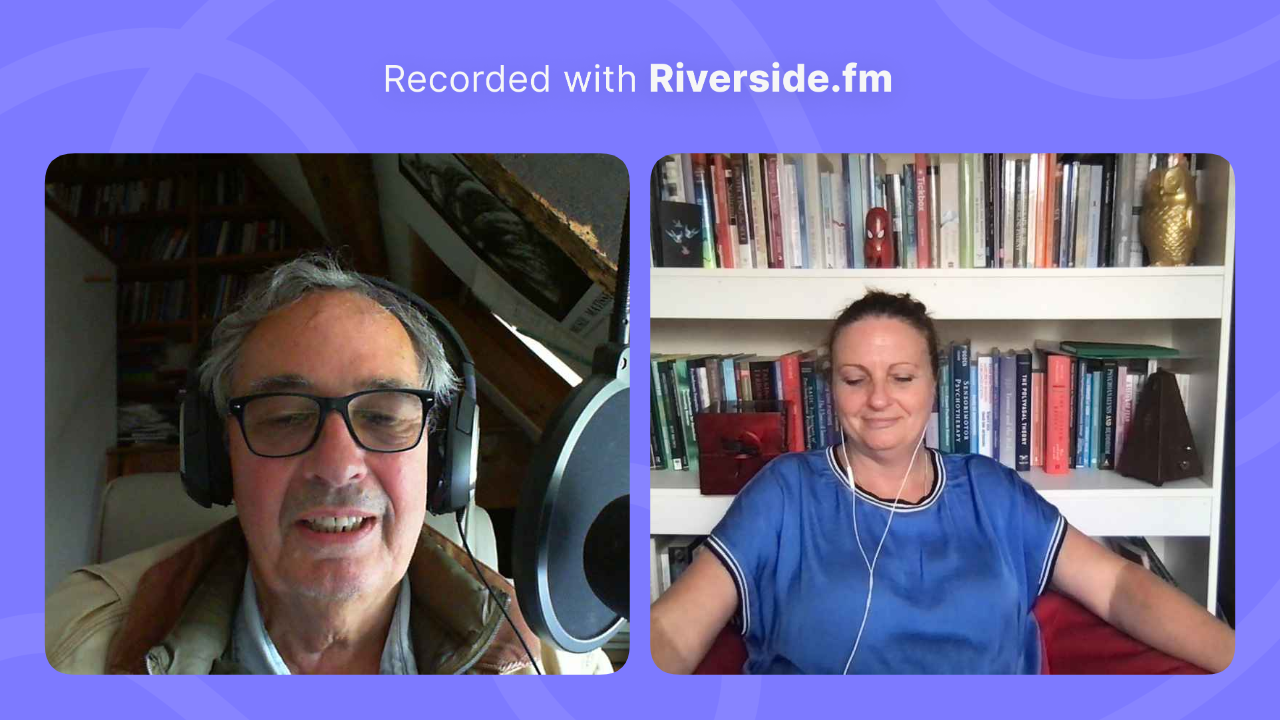
Why 'Locked up Living?'
David is a psychotherapist who has worked leading therapeutic communities in English prisons and in Millfields, an NHS forensic setting in East London. Naomi is a Consultant Clinical and Forensic psychologist who was, for many years, clinical lead at The Fens, a treatment programme for serious offenders at HMP Whitemoor. We had both experienced painful and destructive forces in our work and so we set out to discover what things make a positive difference for staff and service users and what is it that makes things go wrong. Of course we found out that there is no easy answer but there are many fascinating and valuable experiences to be heard.






